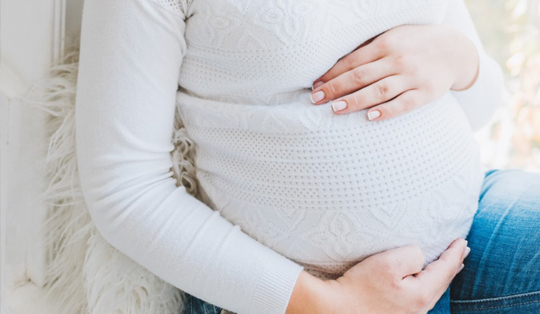 Postpartum depression (PPD) is a mental health disorder that occurs in women during or after delivery. 1 in 7 women suffer from postpartum depression.
Postpartum depression (PPD) is a mental health disorder that occurs in women during or after delivery. 1 in 7 women suffer from postpartum depression.
Other than the symptoms of depression, a mother with PPD may experience:
- crying without a reason and crying often
- feeling hopeless or overly concerned about any situation
- frequent mood swings
- feeling sad
It is not normal for a mother to feel disappointed or hopeless after having a baby. Hence, any family member who notices behavioral changes in your spouse or relative after delivery, must help the mother get medical help as soon as possible.
When does postpartum depression start?
Some new mothers do experience PPD like symptoms 2-3 days after delivery and these might last for 1-2 weeks. These are called 'baby blues' symptoms, which usually go away after 14 days. You should contact a postpartum depression therapist if you experience symptoms of postpartum depression for more than two weeks. PPD is diagnosed in a person who has the symptoms during her pregnancy or within 4 weeks of delivery.
Though the exact cause of PPD is unknown, imbalance and fluctuating levels of hormones that occur in a pregnant woman during and after delivery may be one of the several causes of PPD. Certain stressors like loss of a baby, domestic violence from a spouse, earlier episodes of bipolar depression also can contribute to postpartum depression.
Depressive symptoms can continue for years in a person If left untreated. Also, it affects the relationship and bond between the mother and the baby. Before PPD turns into a severe mental condition and becomes difficult to treat, it is best to consult a mental care provider to discuss your symptoms and start the treatment.
Can miscarriage trigger postpartum psychosis?
Yes, in some women, miscarriage may be the cause of PPD owing to physical and hormonal changes in addition to stress.
Postpartum depression treatment
You will undergo initial screening to be diagnosed with PPD. Once the doctor confirms that you are suffering from PPD, the next step would be to make a treatment plan that best suits your health and condition.
Treatment for postpartum depression includes:
- Antidepressants - to reduce the severity of PPD symptoms
- Mood stabilizers - to regulate the mood swings caused by PPD
- Cognitive Behavioral Therapy - helps to manage the symptoms of PPD and help her overcome her negative thoughts and try to change the way she feels.
- ECT (Electroconvulsive therapy) - this is an invasive method of PPD treatment that involves sending electrical pulses to stimulate certain parts of the brain responsible for triggering perinatal depression.
- Transcranial Magnetic Stimulation Therapy (not FDA approved for treating postpartum depression):
TMS is a brain stimulation therapy for postpartum depression similar to ECT, which stimulates areas of the brain to reduce the symptoms of depression. The major difference between ECT and TMS is that TMS is a noninvasive method.
TMS is very beneficial and comes as a lifesaver to many people who are not suitable to take antidepressants and also to those who do not see any positive impact after trying other treatment modalities.
Is TMS Safe during pregnancy?
Though not FDA approved, TMS is safe during pregnancy, unlike oral medications. Pregnant and breastfeeding mothers can undergo TMS. There are some exceptions to this case. If you have a history of seizures or any metal implants in your head, consult your doctor. Talk to us to know if you are eligible for TMS treatment.
Can men have postpartum depression?
Some fathers may experience peripartum depression. Stress or a history of other mental health illnesses may trigger peripartum depression in men. If you notice tiredness, irritability, sudden changes in eating habits after the birth of a baby, it is best to consult a doctor.
How to deal with postpartum depression?
While brain stimulation therapy like TMS can prove to be tremendously helpful, there are certain tips that you and your spouse can adopt to ensure that the patient responds to the treatment:
- If you notice that your spouse (new mother) is showing signs of PPD, please make sure that you help her to get the required medical attention.
- Relieve stress - Several factors like domestic violence, work from stress can make PPD worse. Try not to stress yourself too much.
- Listen to the patient - Listening to what the person experiences and not taking it lightly may help the patient's mood and feelings to change over time. Provide ample emotional support to the patient.
If you experience suicidal thoughts or have thoughts about harming your baby, please do not wait and get immediate medical help without any delay. You may call your midwife or a trusted mental health care provider for further assistance.


 TMS Other Conditions
TMS Other Conditions